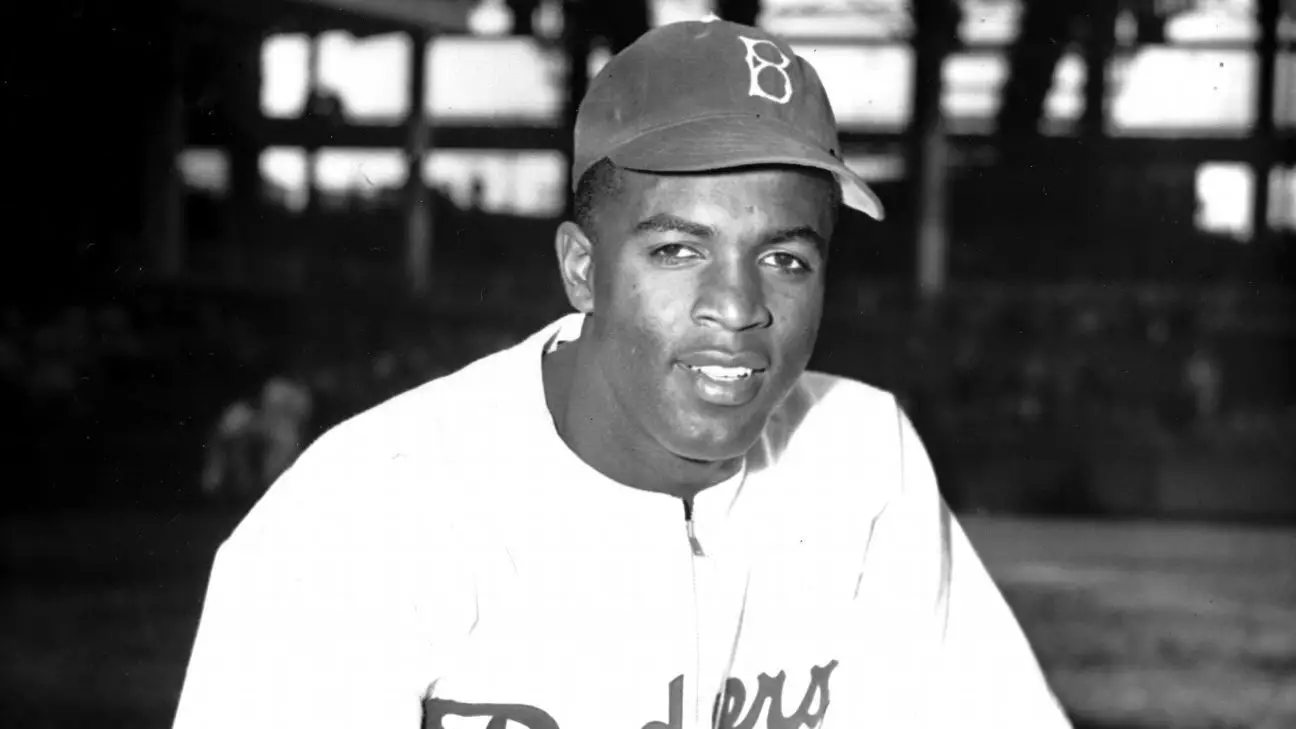Jackie Robinson is not just a name inscribed in baseball history; he is synonymous with courage and change. Throughout his life, Robinson defied systemic barriers and prejudice, ultimately transcending the role of a mere athlete to become a formidable symbol of racial equality. The recent uproar surrounding his military service and the Department of Defense’s (DoD) handling of his legacy underscores the ongoing struggle over narratives that shape our understanding of American history. Jackie Robinson’s contributions extend far beyond the baseball field—his military service during World War II and subsequent civil rights advocacy set the stage for gradual societal change in America.
Recently, a Department of Defense article detailing Robinson’s military history was removed only to be reinstated soon after—a troubling reflection of how political ideologies can impact the portrayal of historical figures. Initially scrubbed due to bureaucratic directives aimed at minimizing content related to Diversity, Equity, and Inclusion (DEI), the article’s removal raised eyebrows and prompted backlash from various stakeholders. This event highlights the precarious tension between honoring veterans and adhering to a narrow ideological viewpoint. Robinson, who served as a second lieutenant in the U.S. Army and faced court-martial for standing against racial discrimination, is emblematic of the fight against injustice in all its forms, not merely those encompassed by DEI narratives.
The Military Experience that Shaped a Legend
Robinson’s military service was as significant as his achievements in baseball, serving as a catalyst for the values he stood for throughout his life. Drafted into the Army in 1942, Robinson confronted unyielding racial prejudice, particularly evident in his court-martial after he refused an order rooted in discrimination. His acquittal marked a pivotal moment, reinforcing his belief in equality and justice—principles he would later champion on the national stage. The 761st Tank Battalion, with whom Robinson served, was a step away from the combat units that had long been closed to African Americans. His experiences in the Army not only honed his leadership skills but also sharpened his resolve against racial oppression, fortifying his character as he stepped into Major League Baseball in 1947.
Jackie Robinson’s enlistment and experiences serve as a testament to the complexity of identity. While the DoD may vehemently distance itself from utilizing racial or ethnic markers to define heroes, it is essential to understand that Robinson’s legacy as a Black man fighting both on foreign soil and within America’s own borders is intrinsically tied to his race. To erase these elements while celebrating his service threatens to undermine his entire life’s work toward social justice and equality.
The Ideological Backlash and Its Implications
The Pentagon’s directive against DEI underscores a troubling trend in contemporary discourse that seeks to diminish conversations around race and equity. Statements calling the DEI movement “Discriminatory Equity Ideology” reflect a resistance to addressing critical issues of inequality rooted in systemic racism and discrimination. This ideological stance seeks to minimize the narratives of those like Jackie Robinson, who dared to confront and challenge the status quo at great personal risk.
The incident surrounding Robinson’s article illustrates a growing tension in how history is remembered and taught. Organizations like Major League Baseball (MLB) grapple with honoring pioneers whose sacrifices reveal uncomfortable truths about American society. Robinson’s number 42 is retired across the league, and each year on April 15, baseball commemorates his groundbreaking contributions. Yet, the issue arises: how do we reconcile honoring a figure like Robinson while navigating a political landscape that attempts to sanitize or politicize his narrative?
Furthermore, the controversy raises pointed questions about the role of institutions in shaping historical narratives. By selectively removing content that explores DEI within military contexts, the DoD risks presenting a skewed version of events. It neglects the broader implications of racial inequality that persisted even among those who served honorably in the armed forces.
The Legacy Lives On
As we reflect on Jackie Robinson’s remarkable life, we must consider how we preserve the legacies of individuals who fought against discrimination not just on battlefields and ballparks, but in the everyday lives of people. The responsibility lies with all of us—vigilance in protecting the nuanced narratives that reveal the truth about America’s past and the ongoing fight for justice. Robinson’s story is far from an isolated phenomenon; it echoes throughout history and invites us to confront not just the victories, but also the inequalities that persist. His legacy imparts a crucial lesson for future generations, reminding us that the struggle for equality continues.

